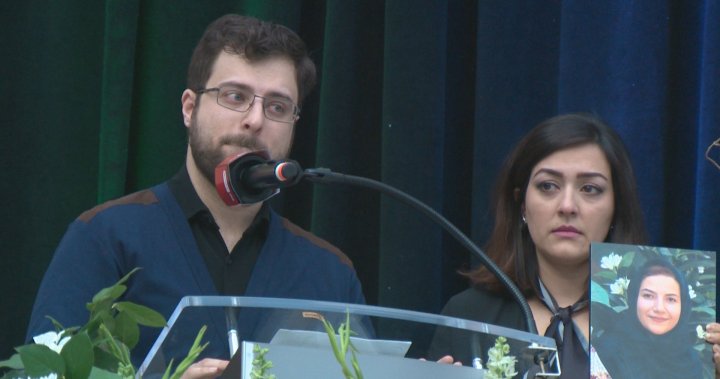Paragraph 1: Concerns Raised by the Iranian Diaspora
The Hogue Commission, tasked with investigating foreign interference, has released documents summarizing consultations with the Iranian Canadian community. These consultations revealed deep concerns about Canada becoming a safe haven for members of the Iranian regime involved in human rights abuses and criminal activities. Iranian Canadians highlighted the presence of former regime officials in Canada, some of whom held positions within the government of the Islamic Republic. The community also expressed worries about the infiltration of Iranian Canadian organizations by individuals acting on behalf of the regime, raising concerns about the potential for manipulation and influence within these community spaces.
Paragraph 2: Accusations of Regime Influence and Infiltration
Testimonies presented to the commission painted a picture of regime officials integrating into Canadian society, sometimes flaunting their wealth and connections. Nazanin Afshin-Jam MacKay, a human rights activist, described the distressing experience of seeing children of regime officials driving luxury cars in Vancouver and alleged that real estate agents facilitated the investment of regime-linked funds in British Columbia. Other witnesses recounted sightings of former Iranian police chiefs and cabinet ministers residing or vacationing in Canada. These accounts fueled concerns that Canada’s lax immigration policies were inadvertently enabling the regime’s presence and potential influence within the country.
Paragraph 3: Calls for Enhanced Screening and Scrutiny
The Iranian Canadian community has urged the Canadian government to take concrete steps to address these concerns. Among the recommendations presented to the commission were calls for improved screening processes for Iranian immigrants to identify and prevent the entry of former regime officials with questionable backgrounds. This includes leveraging publicly available resources like the "Faces of Crimes" database, which documents human rights abuses committed by Iranian officials. Some witnesses proposed establishing specialized units within immigration or foreign affairs departments dedicated to scrutinizing applications from Iran more rigorously.
Paragraph 4: Targeting Dissidents and Threats within Canada
Beyond the presence of former officials, the commission also heard evidence of the Iranian regime targeting dissidents within Canada. The regime’s tactics reportedly include threats, intimidation, and harassment directed at individuals critical of the clerical leadership. Irwin Cotler, a former Liberal MP, was identified as one such target of an alleged assassination plot. The commission also heard testimony from Javad Soleimani, whose wife was a victim of the 2020 downing of Ukraine International Airlines Flight 752 by the Iranian Revolutionary Guard Corps (IRGC). Soleimani described being contacted by Iranian intelligence and threatened after he refused to remove a social media post critical of the regime.
Paragraph 5: Government Response and Deportation Challenges
In response to the regime’s crackdown on women’s rights protests in 2022, the Canadian government announced a ban on senior regime officials entering the country. Immigration officials have since identified several suspected regime members, but the deportation process has proven challenging. While deportation orders have been issued in some cases, only a limited number of individuals have actually been removed from Canada. The Immigration and Refugee Board’s refusal to approve deportation in at least one case highlights the complexities and legal hurdles involved in removing individuals suspected of ties to the Iranian regime.
Paragraph 6: Ongoing Concerns and Future Actions
Despite government efforts, concerns persist within the Iranian Canadian community about the regime’s continued presence and influence in Canada. Allegations of IRGC members operating freely within the country and the regime’s alleged use of mosques and community groups to promote its agenda further underscore the need for continued vigilance. The case of Amin Yousefijam, also known as Ameen Cohen, an Iranian convicted of sanctions evasion, is another example of the challenges Canada faces in dealing with individuals linked to the regime. As deportation hearings and investigations continue, questions remain about the effectiveness of current measures and the need for stronger action to prevent Canada from becoming a safe haven for those implicated in human rights abuses and other illicit activities under the Iranian regime.

